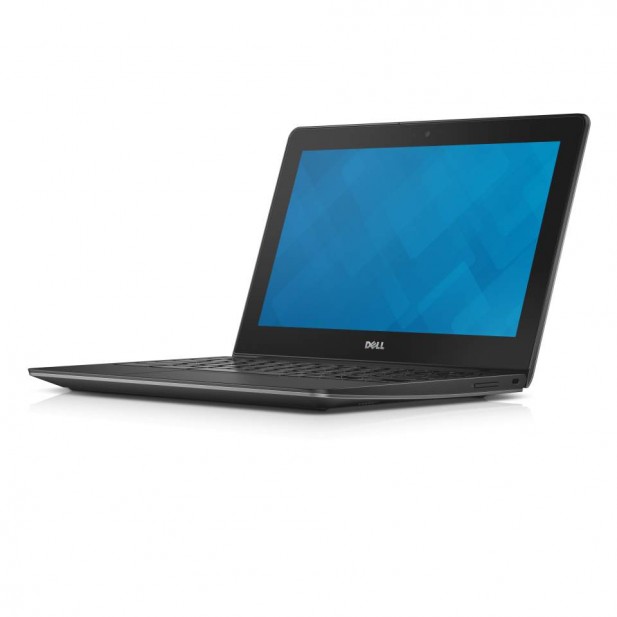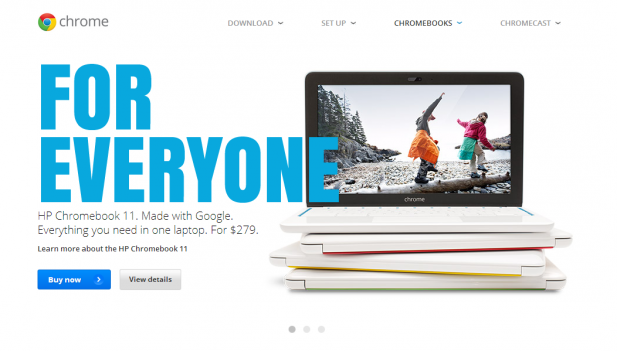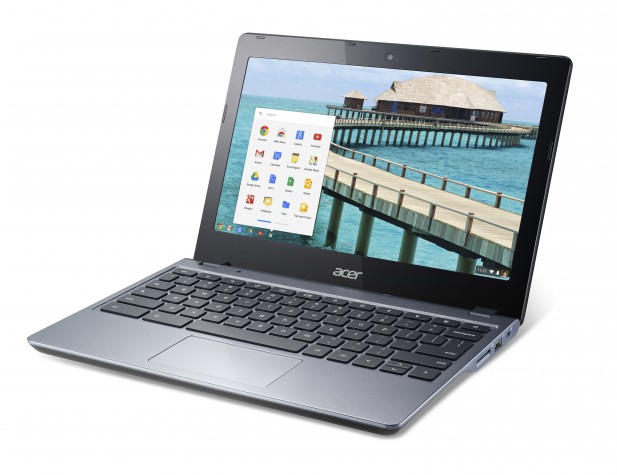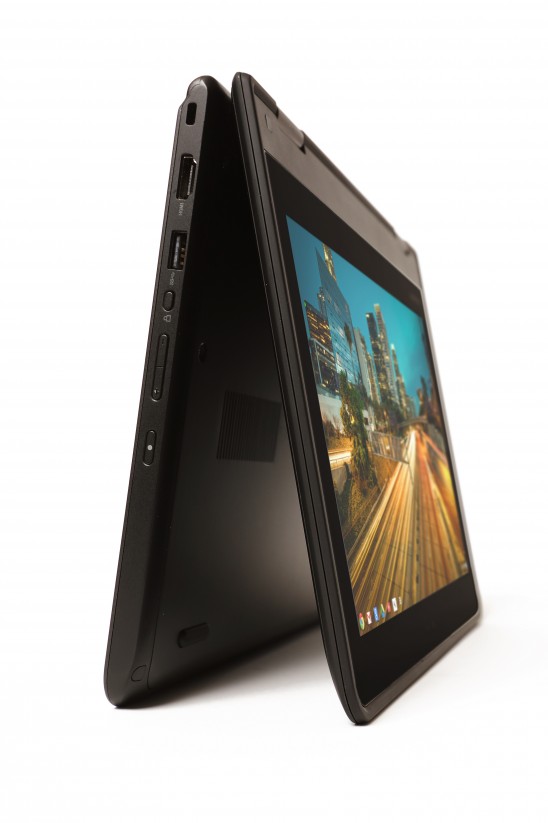Yesterday Intel and its partners rolled out a series of new Bay Trail-M Chromebooks that run Google’s maligned Chrome OS. In addition to being branded as Atom devices Intel is also giving certain models the storied and distinguished Celeron branding. Intel is also allowing the use of Haswell derived Core i3 chips in what they call, “A new class of Chromebooks…” Essentially what’s going here is OEMs are updating their Chrome OS products with the latest Intel chips and Intel has rather magnanimously decided to allow some higher-end SKUs to be used in Chromebooks.
None of that is really all that interesting though; what is interesting is that near every major OEM is rolling out a Chromebook and that the vast majority of Chromebooks on the market are Intel-based. Acer, ASUS, Dell, HP, Lenovo, LG Electronics USA and Toshiba all now have at least one Intel-based Chromebook offering. More than that though Intel has declared itself to be, “…the largest contributor to the Chromium OS.” And to add yet more salt the wounds of ARM chip makers, AMD, and of course Microsoft, Intel’s chips are the first and only chips that currently support the 64-bit version of Chrome OS.
For ARM, Intel’s growing dominance of this segment is a setback. Initial there was quite a bit of hope and speculation that Google’s Chromebook effort was going to be ARM’s inroad into the laptop market. But now that Intel’s successfully co-opted that effort into a mostly x86 affair it appears that ARM’s advance into the traditional PC space has stopped or at least been slowed for now. For AMD which has been MIA in the Chromebook space Intel’s strength here should be disconcerting especially considering how heavily AMD relies on the sub $500 Windows laptop segment that Google’s Chromebook efforts are eating into. But this news is probably worst for Microsoft which has struggled to grow its share of the sub $500 PC market since the launch of Windows 8 and Windows RT, a variant of Windows designed to run on ARM –based chips. Not only is Google eating into Microsoft’s market share, but they’re doing it in a high volume segment by leveraging Microsoft’s traditional hardware partners and PC OEMs. Chromebooks still remain a decidedly entry-level proposition due to the locked down and highly limited OS. But as the growth of smartphone market has decidedly proven, consumers are willing to forgo power and control for improvements in ease of use and a low initial cost. The reliance upon Intel’s chips by OEMs for powering Chromebooks is likely to be a negative long-term trend against innovation and the health of Chrome OS. But considering Google’s positioning of Chrome OS as the backbone to an ecosystem of cheap and simple devices used purely for accessing Google’s cloud services the negative impact of having only one major hardware choice will be limited.
Chromebooks still remain a decidedly entry-level proposition due to the locked down and highly limited OS. But as the growth of smartphone market has decidedly proven, consumers are willing to forgo power and control for improvements in ease of use and a low initial cost. The reliance upon Intel’s chips by OEMs for powering Chromebooks is likely to be a negative long-term trend against innovation and the health of Chrome OS. But considering Google’s positioning of Chrome OS as the backbone to an ecosystem of cheap and simple devices used purely for accessing Google’s cloud services the negative impact of having only one major hardware choice will be limited.
For now Intel owns the hardware side of Google’s Chromebook. But there should be no doubt that as ARM’s partner’s rollout their own 64-bit chips there will be at least a few meaningful challenges to Intel’s dominance in this segment. Real question though is how will Microsoft respond to a resurgent Chrome OS and an Intel that is clearly willing to play on both sides of the fence.S|A
Thomas Ryan
Latest posts by Thomas Ryan (see all)
- Intel’s Core i7-8700K: A Review - Oct 5, 2017
- Raijintek’s Thetis Window: A Case Review - Sep 28, 2017
- Intel’s Core i9-7980XE: A Review - Sep 25, 2017
- AMD’s Ryzen Pro and Ryzen Threadripper 1900X Come to Market - Aug 31, 2017
- Intel’s Core i9-7900X: A Review - Aug 24, 2017


